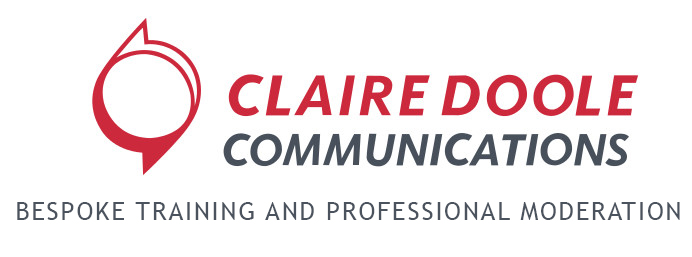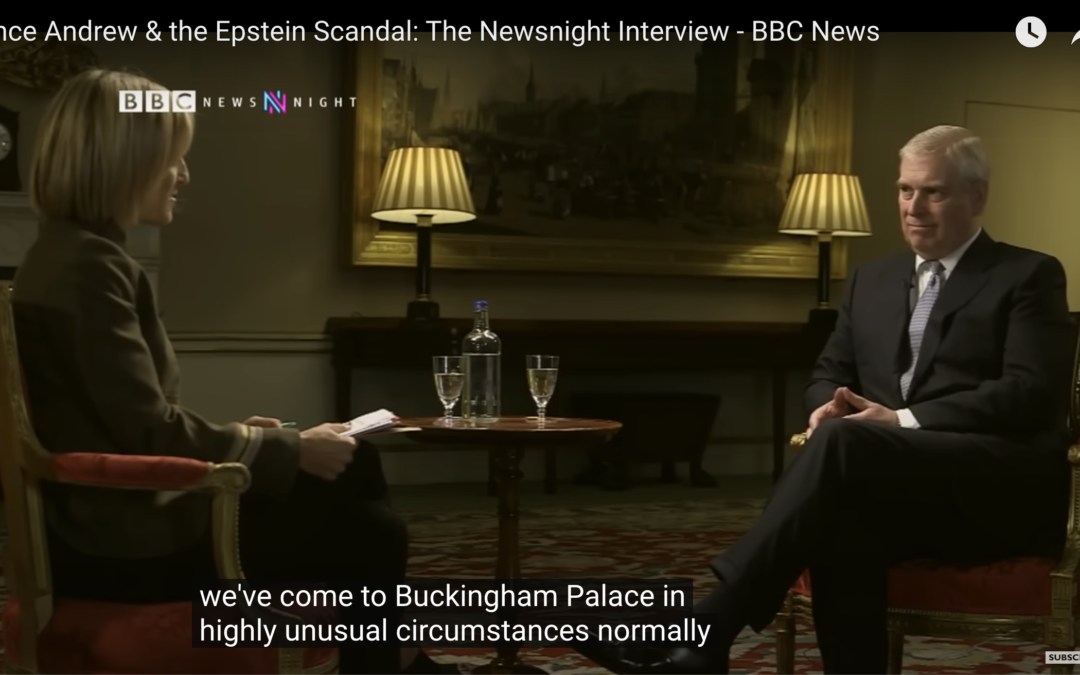Did you watch Emily Maitlis’s interview with Prince Andrew about his relationship with the convicted pedophile Jeffrey Epstein? If not, did you see the wonderful film that has just come out – Scoop – about that interview?
Emily excels as an interviewer. She enters each conversation well prepared, focused and with a clear idea of how she wants to steer the conversation. Her strength also lies in her ability to listen to deepen her understanding and ask probing follow-up questions. This blend of preparation and flexibility is one of the reasons her interviews are so compelling.
You may not get to interview a member of the British royal family – few get that opportunity. However, her approach and techniques are worth observing, if you are asked to conduct an on-camera interview for your organization or company.
Over the past few months, I have trained a number of people on how to interview their CEOs, members of senior management teams or technical experts for videos to be posted on the company intranet, website or social media platforms.
My top five tips are:
• Know your purpose. What do you want to hear from your
interviewee that is of interest to your audience?
• Have a clear flow in mind. You need to have a logical
structure so it is easier for the audience to follow.
• Be curious. You know where you want to go, but you have to
listen actively so that you can clarify if something is unclear or
unexpected or probe with a follow-up question.
• Practice reverse engineering. You may have submitted your
questions to the interviewee ahead of time, but you need to sound
and appear to the audience as if this is the first time you have asked the
question. Audiences check out when they feel an interview is scripted.
• Ask questions that elicit an emotional response. You will
find that questions that ask how the interviewee feels about something or
about what he/she has seen are the ones that are usually the most memorable.
These are often best asked spontaneously so that the response is natural and
heartfelt. You can always decide later whether to use them in the final edit.
Question techniques
Broadcast journalists are great interviewers as they interview day in and day out either for soundbites for a report they are doing or live on-air. Live interviews are the most challenging as you have no opportunity to retake the question and have to quickly link between the answer you receive and your next question to ensure a seamless conversation.
Here are some examples of what to do or not do from two broadcast journalists, who were interviewing Philippe Lazarini, the Commissioner General of UNRWA.
1. Don’t ask long open questions or multiple questions as the answer will be very long.
https://vimeo.com/manage/videos/975311481/privacy
You can see that the question was almost one minute and elicited a two-minute 30 answer!
2. Do intervene for clarification, for example, if the interviewee uses an acronym, jargon, or assumes too much knowledge.
https://vimeo.com/manage/videos/975322903/privacy
You are asking the questions your audience wants asked so put yourself in their shoes.
3. Do ask a question that is personal and emotional, such as this one about whether it is hard to separate your feelings from your job.
https://vimeo.com/manage/videos/975320466/privacy
This answer is often the one that is most memorable/quotable.
4. Do have a strong final question, as you want to leave the audience with something memorable. If you flag up this as the final question, you help the interviewee focus on giving a great response, as Philippe Lazzarini does here.
https://vimeo.com/manage/videos/975326437/privacy
Journalists are looking for strong newsworthy answers, although sometimes it can be more important to ask a key question the public wants answered even if it doesn’t elicit a great answer. However, when you are interviewing for PR purposes, your job is to get the best possible answer from the interviewee so they come across as credible, knowledgeable and empathetic.
A former BBC journalist in London, Brussels, Berlin and Geneva, Claire can help you become a great interviewer if asked to conduct an on-camera interview or to ask questions off camera for your corporate video. Contact her at claire@doolecommunications.com

